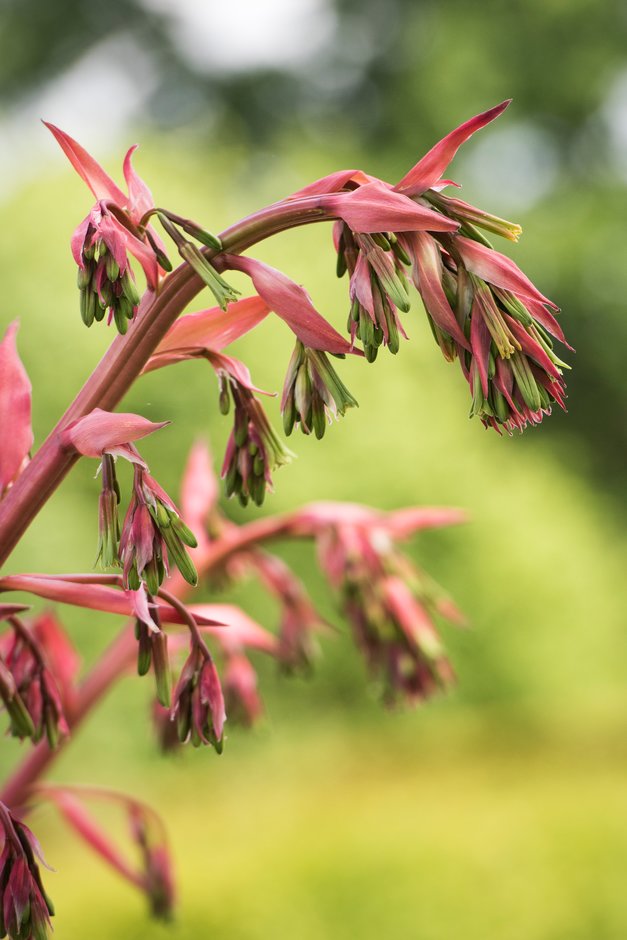Beschorneria yuccoides
yucca-leaved beschorneria
A perennial forming a large clump of slightly fleshy, grey-green, strap-shaped leaves to 20cm in length. Yellow-green tubular flowers with showy red bracts borne in arching racemes to 1.5m in height
Size
Ultimate height
1–1.5 metresTime to ultimate height
5–10 yearsUltimate spread
1–1.5 metresGrowing conditions
Moisture
Well–drainedpH
Acid, Alkaline, NeutralColour & scent
| Stem | Flower | Foliage | Fruit | |
| Spring | Green Grey Silver | |||
|---|---|---|---|---|
| Summer | Green Red Yellow | Green Grey Silver | ||
| Autumn | Green Grey Silver | |||
| Winter | Green Grey Silver |
Position
- Full sun
Aspect
West–facing or South–facing
Exposure
ShelteredDrought resistance
Yes Hardiness
H3Botanical details
- Family
- Asparagaceae
- Native to GB / Ireland
- No
- Foliage
- Evergreen
- Habit
- Clump forming
- Genus
Beschorneria are large, clump-forming evergreen perennials with strap-shaped, somewhat succulent leaves and nodding tubularflowers in arching racemes with conspicuous red bracts in late spring or early summer
- Name status
Correct
- Plant range
- Mexico
How to grow
Cultivation
Can be grown outdoors in warmer areas, in a very well-drained humus-rich loam but will require protection from frosts. Under glass grow in full light in standard cactus compost. When in growth water moderately and apply a balanced liquid fertiliser monthly. Water sparingly in winter
Propagation
Propagate by seed sown in spring at 21°C. Offsets can be carefully removed and potted up in spring
Suggested planting locations and garden types
- Architectural
- Coastal
- City and courtyard gardens
- Wall side borders
Pruning
No pruning required
Pests
May be susceptible to scale insects
Diseases
Generally disease-free
Get involved
The Royal Horticultural Society is the UK’s leading gardening charity. We aim to enrich everyone’s life through plants, and make the UK a greener and more beautiful place.
